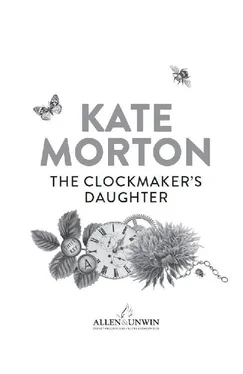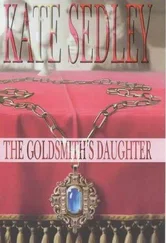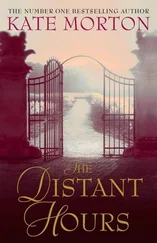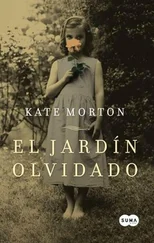Kate Morton - The Clockmaker's Daughter
Здесь есть возможность читать онлайн «Kate Morton - The Clockmaker's Daughter» весь текст электронной книги совершенно бесплатно (целиком полную версию без сокращений). В некоторых случаях можно слушать аудио, скачать через торрент в формате fb2 и присутствует краткое содержание. Год выпуска: 2018, Издательство: Allen & Unwin, Жанр: Старинная литература, на английском языке. Описание произведения, (предисловие) а так же отзывы посетителей доступны на портале библиотеки ЛибКат.
- Название:The Clockmaker's Daughter
- Автор:
- Издательство:Allen & Unwin
- Жанр:
- Год:2018
- ISBN:нет данных
- Рейтинг книги:4 / 5. Голосов: 1
-
Избранное:Добавить в избранное
- Отзывы:
-
Ваша оценка:
- 80
- 1
- 2
- 3
- 4
- 5
The Clockmaker's Daughter: краткое содержание, описание и аннотация
Предлагаем к чтению аннотацию, описание, краткое содержание или предисловие (зависит от того, что написал сам автор книги «The Clockmaker's Daughter»). Если вы не нашли необходимую информацию о книге — напишите в комментариях, мы постараемся отыскать её.
The Clockmaker's Daughter — читать онлайн бесплатно полную книгу (весь текст) целиком
Ниже представлен текст книги, разбитый по страницам. Система сохранения места последней прочитанной страницы, позволяет с удобством читать онлайн бесплатно книгу «The Clockmaker's Daughter», без необходимости каждый раз заново искать на чём Вы остановились. Поставьте закладку, и сможете в любой момент перейти на страницу, на которой закончили чтение.
Интервал:
Закладка:
‘What sort of items were taken, Mr Holmes?’
‘Oh, mere trifles in the scheme of things, Inspector Wesley. Nothing to bother yourself with. I know how busy you are. I’m just pleased to have been able to offer you some small assistance in clearing up this disturbing matter. To think of my friend being taken in by a pair of charlatans – well, it makes my blood boil. I reproach myself for not having put it all together sooner. We’re lucky Mr Brown sent you to us.’
The final nail in the coffin came when the inspector arrived one morning and announced that Lily Millington had not even been the model’s real name. ‘My men in London have been asking questions and looking into the records of births, deaths and marriages, and the only Lily Millington they could find was a poor child who was beaten to death at a public house in Covent Garden in 1851. Sold to a pair of baby farmers and lock pickers by her father as a child. Little wonder why she didn’t make it.’
And so, it was settled. Even Lucy had to accept that the inspector was right. They had all been taken in and swindled. Lily Millington was a liar and a thief; her name wasn’t even Lily Millington. And now the faithless model was in America with the Radcliffe Blue and the man who’d shot Fanny.
The investigation was closed and the inspector and the constable left Birchwood, shaking hands with Mr Brown and Grandfather and making promises to contact their counterparts in New York City in the hope that they might thereby at least recover the diamond.
Uncertain what else to do, stuck out in the country where the lazy stretch of summer had come to an abrupt end and the rain had set in, the Magenta Brotherhood returned briefly to Birchwood Manor. But Edward was a wreck and his desolation and anger permeated the very air. He and the house were one, and the rooms seemed to take on the faint but foul odour of his grief. Powerless to help him, Lucy stayed out of his way. His distress was catching, though, and she found herself unable to settle to anything. She was beset, too, with an uncharacteristic apprehension about the stairs where it had all happened, and took to using the smaller set at the other end of the house instead.
Finally, Edward could stand it no longer: he packed his things and sent for a carriage. Two weeks after Fanny was killed, the curtains were closed, the doors were locked, and two horse-drawn carriages thundered up the lane from Birchwood Manor, carrying them all away.
Lucy, sitting on the back seat of the second one, had turned as they left, watching as the house receded further and further into the distance. For a second, she thought that she saw one of the curtains in the attic shift. But it was just Edward’s story, she knew; the Night of the Following playing on her mind.
CHAPTER TWENTY-EIGHT
Back in London, nothing was the same. Edward departed almost at once, travelling to the Continent and leaving no forwarding address. Lucy never saw what became of his final painting of Lily Millington. After he had left she dug up the hidden key to his studio and went inside, but there was no sign of it there. In fact, all trace of Lily was gone: the hundreds of sketches and studies had all been pulled from the walls. It was as if Edward had known even then that he was never again going to paint inside the Hampstead garden studio.
Clare, for her part, did not stay long either. Having given up her pursuit of Thurston Holmes, she married the first wealthy gentleman who asked her and was soon happily enough ensconced within a large soulless country house of which Grandmother was predictably enamoured. She had two babies in quick succession, fat little wrigglers with wide cheeks and milky jowls, and on occasion over the years, when Lucy went to visit, spoke vaguely about having a third if only her husband would deign to spend more than a week each month at home.
By 1863, the year that Lucy turned fourteen, it was only Mother and her left at home. It seemed to have happened so quickly that each was left as stunned as the other. Finding themselves in a room together, they would both look up, surprised, before one of them – usually Lucy – made an excuse to leave, saving each the difficulty of having to invent a reason to explain the lack of conversation.
Lucy, as she grew into adulthood, eschewed love. She had seen what it could do. Lily Millington had left Edward and it had broken him. And so she avoided love. That is, she avoided the complication of locking hearts with another human being. For Lucy had fallen deeply in love with knowledge. She was greedy for its acquisition, impatient with her own inability to absorb new information quickly enough. The world was just so utterly abundant, and for each book that she read, each theory that she came to understand, ten more branched out before her. Some nights she lay awake wondering how she could best divide her lifetime: there simply wasn’t enough of it for a person to ensure that they learned everything they wished to know.
One day, when she was sixteen years old and sorting through the items in her bedroom in order that a new bookcase might be moved up from the study, she came across the small suitcase that she had taken with her to Birchwood Manor in the summer of 1862. She had pushed it to the back of the cupboard beneath the window seat when she returned, wanting to forget the entire episode, and hadn’t given it another thought in the intervening three years. But Lucy was a sensible girl, and so, despite not having expected to turn up the suitcase, now that she had, she decided that it made no sense at all to avoid dealing with the items inside.
She unlatched the case and was pleased to see her edition of The Chemical History of a Candle lying on top. Beneath it were two more books, one of which she remembered finding on the top shelf at Birchwood Manor. Lucy opened it now, gently because the spine was still hanging by only a few fine threads, and saw that the letters were still there; the designs for the priest holes precisely where she’d put them.
She set the books to one side and took up the item of clothing that had been packed beneath it all. Lucy remembered it at once. It was the dress that she’d been wearing that day, her costume for the photograph that Felix was going to take down by the river. Someone must have removed it after she fell, for when she woke in the yellow-striped room at the public house, she had been wearing her nightdress. Lucy remembered packing the costume away afterwards, balling it up and pushing it to the bottom of her case. It had given her an unpleasant feeling then, and now she held it in front of her, testing to see whether she was still spooked by it. She wasn’t. She was sure she wasn’t. Her skin did not heat; her heart did not race. Nonetheless, she had no wish to keep the item; she would put it out for Jenny to cut up for cleaning rags. First, though, because it was something that she’d been taught to do when she was young, she checked the pockets, expecting to find nothing but lint and the inside lining of the fabric.
But what was this? A hard, round item at the bottom of a pocket.
Even as she told herself that it was one of the river stones she’d collected at Birchwood Manor, Lucy knew better. Her stomach knotted and an instant wave of fear flooded her system. She didn’t need to look. It was as if by touching it a rope had been pulled and a curtain lifted, and now light shone onto the dusty stage of her memory.
The Radcliffe Blue.
She remembered now.
It was Lucy who had been wearing it. She had gone back to the house in a tantrum, no longer needed for the photograph, and whilst exploring in Edward’s room she had come across the diamond pendant. Ever since they had walked together to the village, Lucy had found herself thinking of Lily Millington, seeing her through Edward’s eyes, wishing to be more like her. And, holding the necklace, she had perceived a way to feel – just for a moment – what it must be like to be Lily Millington. To be stared at by Edward and adored.
Читать дальшеИнтервал:
Закладка:
Похожие книги на «The Clockmaker's Daughter»
Представляем Вашему вниманию похожие книги на «The Clockmaker's Daughter» списком для выбора. Мы отобрали схожую по названию и смыслу литературу в надежде предоставить читателям больше вариантов отыскать новые, интересные, ещё непрочитанные произведения.
Обсуждение, отзывы о книге «The Clockmaker's Daughter» и просто собственные мнения читателей. Оставьте ваши комментарии, напишите, что Вы думаете о произведении, его смысле или главных героях. Укажите что конкретно понравилось, а что нет, и почему Вы так считаете.












